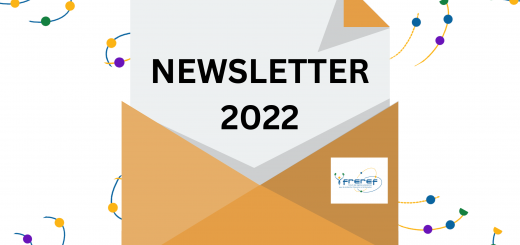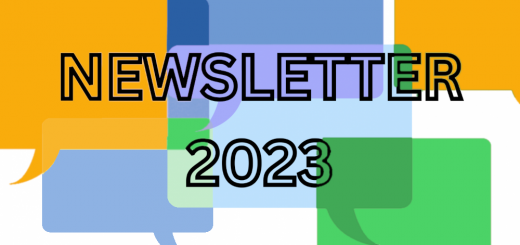Newsletter FREREF Avril-Mai-Juin 2021 – FREREF Newsletter April-May-June 2021
English below
Premiers résultats du projet Citized
L’équipe du projet Citized s’est réunie le 12 et 13 avril pour mettre en commun le travail de recherche sur les politiques en matière d’éducation civique et citoyenne en Europe, et présenter les conclusions des cas d’études dans 6 pays différents ainsi qu’au niveau de l’Union Européenne et du Conseil de l’Europe.
Quelques point communs et divergences ressortent des rapports :
- La plupart des pays ont adopté une approche basée sur l’acquisition de compétences dans le champ de l’éducation citoyenne formelle et informelle, en accord avec le Cadre de Référence pour les Compétences pour la Culture Démocratique (RFCDC) du Conseil de l’Europe et du « Cadre des Compétences Clés » développé par l’UE.
- L’Education citoyenne est souvent enseignée de façon transdisciplinaire, même si l’on constate une prédominance de la perspective historique en France et en Autriche, philosophique en Belgique, et légale ou économique en Italie.
- L’Education citoyenne en Allemagne est protégé par la constitution allemande au même titre que l’Education religieuse, alors qu’en France elle est largement liée au thème de la laïcité.
- L’Education citoyenne est considérée partout comme un sujet hautement politique, et son enseignement au niveau national est l’objet de débat dans tous les pays.
Le premier livrable est disponible (en anglais) « Politiques actuelles pour l’éducation à la citoyenneté et à la démocratie, analyse et classification ».
Spring School 2021 du Réseau international Cité des Métiers
L’équipe de notre projet Places-3T a participé à la Spring School 2021 du réseau Cité des Métiers « Des espaces du 3ème type pour un futur plus désirable » lors d’un workshop le 4 juin dédié aux « espaces du 3ème type », de type tiers lieux, espaces qui se construisent en dehors de la sphère privée sans être exclusivement dans la sphère professionnelle, lieux d’hybridation et d’échanges entre de multiples acteurs et préoccupations.
Trois membres du projet ont animé cet atelier, Pierre Pevée pour Smart, Sanjin Plakalo pour POUR LA SOLIDARITE-PLS et Liliane Esnault pour le FREREF. Ils ont présenté le projet Places-3T, ainsi que l’espace LaVallée, tiers-lieu animé par SMART, et l’une des activités du dispositif 100% jeunes qui s’y déroule, animée par PLS.
Pour en savoir plus, allez lire notre article.
Webinar « Migration et Union Européenne : la gouvernance multiniveaux comme solution
L’équipe du FREREF a assisté le 16 juin au webinaire « Migration et l’Union européenne : la gouvernance multiniveaux comme solution », organisé par le Comité européen des régions en collaboration avec le Service de recherche du Parlement européen (EPRS) et l’Institut autrichien pour le fédéralisme. Deux panels ont réuni des décideur∙se∙s politiques au niveau européen, national et régional, des chercheur∙se∙s et des ONG pour discuter de cette idée et partager des exemples concrets de réussite d’initiatives locales qui s’articulent avec les politiques nationales et européennes (trouvez le programme détaillé et les intervenants sur le site du Comité européen des régions). De cette séance, nous avons voulu souligner trois citations qui résonnent particulièrement pour nous.
Tout d’abord, monsieur Othmar Karas, vice-président du Parlement européen, a rappelé que « la migration est avant tout une question de droit fondamental ». Nous ne pouvons qu’être d’accord avec cette affirmation et ajouterons que l’éducation est également un droit fondamental et devrait être garanti, en particulier lorsqu’il s’agit d’enfants migrants.
Puis Gudrun Biffl, chercheuse à l’Université du Danube, a évoqué une « super-diversité à embrasser », et ce concept résonne avec les concepts centraux du projet CHILD-UP qui sont l’hybridation culturelle et les identités culturelles négociées. De plus, la diversité et la tolérance en tant que valeurs sont promues par l’Education Inspired Peace Lab, qui vise à catalyser les initiatives liées à la paix, à la citoyenneté et à l’éducation civique dans le monde entier.
Enfin, nous tenons à souligner la déclaration de Christian Gsodam, chef de cabinet du secrétaire général du Comité européen de la région, qui a parfaitement décrit le défi de l’élaboration des politiques régionales dans le domaine de l’intégration et de l’inclusion :
« Les régions ont la compétence clé : l’éducation, le logement et les affaires sociales. Il y a tellement de solutions au niveau local ! Ce que nous pouvons faire au niveau européen, c’est apprendre des expériences de référence des uns et des autres (…) et créer des laboratoires de solutions en Europe. »
Notre équipe tient à remercier tous les participants de ce webinaire. Nous sommes ravi∙e∙s de contribuer à ce défi avec le projet CHILD-UP et à travers l’initiative du EIP Lab.
Consultation Child-Up sur les impacts de la pandémie sur les enfants migrants
Après avoir reçu les résultats de notre consultation sur les effets de la Covid-19 dans l’éducation des enfants migrants dans le cadre du projet CHILD-UP, nous pouvons constater que les participant.e.s ont tendance à percevoir les impacts négatifs de la classe à la maison sur l’intégration et l’apprentissage des enfants migrants de façon plus élevé que les potentiels impact positifs. La consultation rend également compte des principales préoccupations et espoirs du personnel encadrant, des parents et des chercheur∙se∙s. Cliquez ici pour avoir les résultats détaillés.
Le FREREF a des nouvelles recrues !
Comme nous l’avions déjà annoncé, le FREREF cherchait un.e stagiaire pour accompagner le développement du FREREF et nous aider dans nos activités et projets. Nous vous présentons donc Maria, venue de l’Espagne, qui a commencé à travailler avec nous le mois de mai, et qui va rester ici jusqu’à la deuxième quinzaine de juillet. Nous accueillerons également Manon pour un stage de juillet à septembre.
*****English*****
First results of the Citized project
The Citized project team has met on April 12th and 13th to exchange their conclusions on the conducted research on citizenship education policies and initiatives in Europe, and to present the results of case-studies in 6 different countries and at the EU and the Council of Europe level.
Here are the main common and divergent elements of the different policies and initiatives:
- Most countries have adopted a competence-oriented teaching method for citizenship education, as promoted by the Council of Europe with their “Reference Framework of Competences for Democratic Culture” and by the EU with their “Key Competences Framework”.
- Citizenship Education is usually transdisciplinary in formal education, although with a predominance of a historical perspective in Austria and France, philosophical in Belgium, and legal and economic in Italy.
- Citizenship Education in Germany has the same constitutional status as religious Education, whereas in France Citizenship Education is deeply linked with secularism.
- Citizenship Education is considered as a highly political topic and its implementation by national policy is subject to debate in all countries.
The full deliverable “Recent policies for democratic citizenship education a comparative, analysis and classification” is available.
The Spring School workshop of the Réseau International Cité des Métiers:
The team for our Places-3T project participated in the online Spring School 2021 of the Réseau International Cité des Métiers “Third-type spaces to jointly create a more desirable future” on June 4th, 2021, in a workshop dedicated to “third-type spaces”, like third places, spaces built outside the private sphere without being exclusively part of the professional one, hybrid places for exchanges between multiple actors and interests.
Three members of the project hosted the workshop, Pierre Pevée from Smart, Sanjin Plakalo from POUR LA SOLIDARITÉ (PLS) and Liliane Esnault from FREREF. They introduced the project and the LaVallée space, the third place hosted by SMART, and one of the activities of the 100% young system which takes place there, hosted by PLS.
To know more about the workshop, read our article.
Webinar “Migration and the European Union: Multi-Level Governance as a Solution”
The FREREF team attended the webinar “Migration and the European Union: Multi-Level Governance as a Solution”, organised by the European Committee of the Regions together with the European Parliamentary Research Service (EPRS) and the Austrian Institute for Federalism on June 16th. Two policy panels gathered European, national and regional policymakers, researchers and NGOs to discuss this idea and share concrete successful examples of local initiatives articulating with national and European policies (you can find the detailed programme and speakers on the European Committee of the Regions’ website). From this session, we wanted to highlight three quotes that particularly resonate for us.
Firstly, mister Othmar Karas, Vice-president of the European Parliament, reminded that above all, “migration is a fundamental right issue”. We can only agree with this statement and would add that Education is a fundamental right too, and should be guaranteed as well, especially when it comes to migrant children.
Then Gudrun Biffl, researcher at the Danube-University, evoked a “super-diversity to embrace”, and this concept resonates with one of the core concepts of the CHILD-UP project which is cultural hybridisation and negotiated cultural identities. Moreover, diversity and tolerance as values are promoted by the Education inspiring Peace Lab, which aims to catalyse initiatives related to peace, citizenship and civic Education all over the world.
Finally, we would like to highlight the statement of Christian Gsodam, Head of Cabinet of the Secretary General, European Committee of the Region, who perfectly described the challenge of regional policymaking in the area of integration and inclusion:
“Regions have the key competence: education, housing and social affairs. There are so many solutions at the local level! What we can do at the European level is learn from each other’s benchmarks experiences (…) and create laboratories for solutions in Europe.”
Our team would like to thank all the participants of this webinar. We are glad to contribute to this challenge with the CHILD-UP project and through the EIP Lab initiative.
Findings of Child-UP survey about the effect of COVID-19
After gathering the results of our survey about the effects of COVID-19 on migrant children’s education, within the frame of the CHILD-UP project, we see that the participants tend to perceive a stronger negative impact than a positive one. The consultation also reported the participants’ main concerns and hopes for the future. Consult the detailed results here.
FREREF has new recruits!
As we had mentioned before, we were looking for an intern to accompany the development of FREREF and help us with our activities and projects. So, we would like to introduce Maria, from Spain, who started working with us in May, and who is going to stay here until the second half of July. Manon will also join us for a short internship from July to September.



